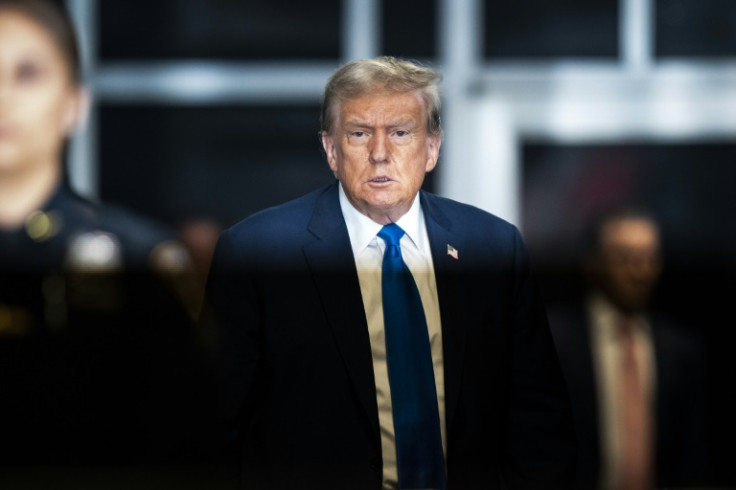
Former President Donald Trump again spoke against the arrival of unlawful immigrants to the southern border, saying they are bringing contagious diseases to the country.
"They're coming in as terrorists. Many, many terrorists are coming in, and people are coming in with very contagious disease," Trump said in an interview with New York radio station WABC.
He went on to say that "it's all of a sudden you see there's a run on tuberculosis, things that we haven't talked about for years in this country."
This is far from being the first time the former president uses such rhetoric, having also said that immigrants are "poisoning the blood of our country" and describing them as "vermin."
Immigration enforcement has become a centerpiece of Trump's campaign. He has repeatedly blasted Biden for what he describes as lack of action in this area, and has vowed to conduct "the largest deportation operation in U.S. history."
Data from the Migration Policy Institute estimates roughly 11.2 million unauthorized immigrants lived in the U.S. in 2021, up from 11 million in 2019.
In an April interview, Trump said he'd use the National Guard "as he sees fit" throughout American cities to deport immigrants if he's reelected. "If I thought things were getting out of control, I would have no problem using the military," he said in an interview with Time magazine.
"We have to have safety in our country. We have to have law and order in our country. And whichever gets us there, but I think the National Guard will do the job."
U.S. military forces— both National Guard and active duty— have historically been used at the border to back up immigration personnel. However, using National Guard forces, or active-duty military, to help directly with deporting migrants, especially in the interior of the country, would be a drastic escalation of their use in the immigration sphere and would likely run into legal challenges, according to The Associated Press.
Trump also told Time he plans to sign orders to reinstall many of the same policies from his first term, such as the Remain in Mexico program, which requires that non-Mexican asylum seekers be sent south of the border until their court dates. He would also be looking at reinstating Title 42, which allows border officials to expel migrants without letting them apply for asylum.
However, such an operation could have unintended consequences for Trump, as economists worry that such projects could bring a massive blow to the U.S. job market.
As a response to Trump's plan on immigration, many economists and business leaders warn that this scenario could trigger higher unemployment and slower growth— while also devastating the country's immigrant workforce, according to The Washington Post. These proposals could also exacerbate inflation.
Recent estimates from the Congressional Budget Office said the U.S. labor force will have grown by an additional 5.2 million people by 2033, especially thanks to net immigration, and that the economy will grow by $7 trillion more over the next decade than it would without new immigrants.
© 2025 Latin Times. All rights reserved. Do not reproduce without permission.





